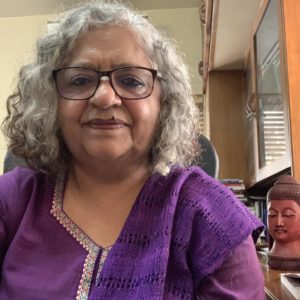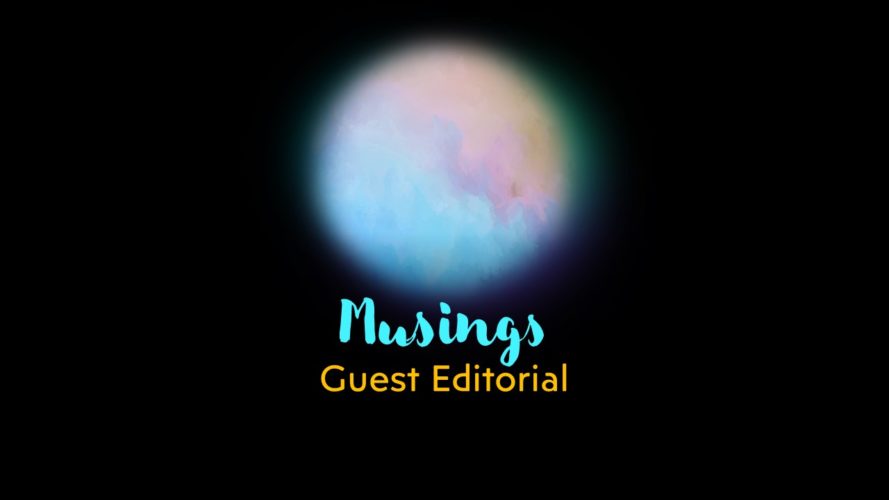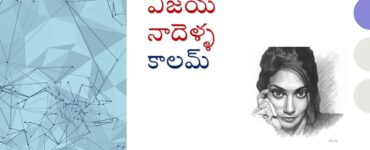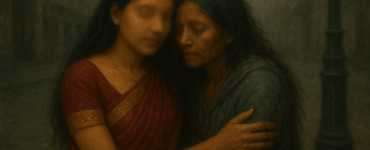 This is an opportunity for me to muse over an old but a forever fresh question, for my own benefit as well as the readers. Years of creating and critiquing literature has not led to my complete understanding of the question, what is literature? Year after year, I studied literature, gathered degrees in literary studies; wrote critical books, taught literature and published my poems. But the question still haunts me. What makes a literary piece vibrate with life, what makes words throb? How is a literary text different from a historical narrative or a sociological piece?
This is an opportunity for me to muse over an old but a forever fresh question, for my own benefit as well as the readers. Years of creating and critiquing literature has not led to my complete understanding of the question, what is literature? Year after year, I studied literature, gathered degrees in literary studies; wrote critical books, taught literature and published my poems. But the question still haunts me. What makes a literary piece vibrate with life, what makes words throb? How is a literary text different from a historical narrative or a sociological piece?
In his paper on ”Creative Writers and Day – Dreaming”, Freud compares the writer’s activity with that of the child at play. For him, the writer only creates ‘a world of phantasy’ that is separated from reality. Little did he realize that a creative writer is not interested in escaping reality. In fact an artist strives to come closer to reality by constructing an “illusion” in art. Pablo Picasso put it so well “Art is a lie that makes us realize truth”. The creative process remains undefinable because in the act of writing one seems to be operating with a consciousness that is certainly very different from the everyday mundane one. The compelling urge to create takes over and the words get chosen as if from the subconscious in search for some truth. The glimpse of that truth then flashes like a revelation, a eureka moment that yields extraordinary excitement! Here are some lines from my poem “Words Gallop Home”:
“Come, get on the saddle
Reach out to those still words
Rocks of silence
That lie in wait
Awaken them
Into dreams of a universe”
Often when I read my own poem, it doesn’t seem to belong to me, though in the writing of it I may have spent many a sleepless night. Perhaps this is so because my writerly self functions from a different plain of consciousness and is connected to my other self a bit too remotely! In the re-ordering of life experience in the making of literature, the creation of fresh language is crucial. But then, words acquire a luminosity and can ensnare the poet into exhibitionism. One has to be very alert and cautious. No embellishments, nor any pretention would work as art. Art lies, they say, in concealing art. A deep sense of purpose gives shape to the poem and more than some definitive meaning, insights emerge with multiple meanings and layers.
The Indian sage Krishnamurthy often talked about the music of the blades of the grass yonder that we do not hear, the colour spread of nature that our eyes do not notice, and the soil scents we cannot smell. This is where a poem serves a vital purpose, that of waking one up to hearing the unsaid, seeing the unseen and nudging our sensibilities to what our senses may miss. While other “disciplines of knowledge” may create a dichotomy of sensibility, literature makes one a more integrated human being in responding to the natural as well as socio-political environs both cerebrally and emotionally.
The Hindi writer Srikant Verma’s story, “The Cross” comes to mind as just one example from amongst many. This is a powerful story projecting the agonizing isolation of an individual who is disconnected from everything and everyone, to be left alone to carry the cross of life he is nailed to. Ultimately, there is also a sense of tormenting alienation from his own self. The writer is able to penetrate deep into the inner landscape of a character to lay bare his truth that is not visible to others. Literature then becomes more than a mirror and reflects the reality that lies behind the obvious. And, when the reader confronts this inner domain of the character that is otherwise concealed, there is an experiential moment of realization…of an expansion of her own consciousness. This is what literature can do and achieve.
The job of a literary journal is to present a variety of perspectives and possibilities to choose from. Each issue offers a number of writers whose imaginative writings spread a feast of life experiences creatively constructed…A world within worlds opens up. Reading Saranga is particularly enriching for a bilingual reader since it serves two languages, English and Telugu. Even for a reader who may not know both the languages, there is a sense of a silent dialogue going on between these two languages. Telugu is present visually in her script. Two linguistic traditions each carrying its own cultural flow enrich the journal, emphasizing the exhilarating multilingual plurality of India that feed into its cultural diversity.
I am grateful to Afsar Mohammed for inviting me to share my thoughts here…
*









This leads me to Kabir who qualified the Supreme as the one who hears the jingling of the anklets on an ant’s feet. The poet, in trying to capture the unsensed, is inching closer to divinity.
It is classic piece that underlined how the creative writer never loses sight of her inner truth. Very precise in revealing the hidden layers of creative writing.
Warm regards to Sukritaji
It is classic piece that underlined how the creative writer never loses sight of her inner truth. Very precise in revealing the hidden layers of creative writing.
Warm regards
What is literature? Ms Sukrita Paul Kumar has analysed beautifully what’s literature! Literature means a lot which can never be explained truly there are so many of layers of which authors sometimes felt astonished himself / herself! But Ms. Paul Kumar described it beautifully. ।